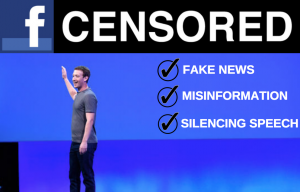Op-Ed: The Phnom Penh Post
Former deputy opposition leader Mu Sochua said the decision shows “justice always prevails”, and claimed Hun Sen spent thousands of dollars a day on likes.
“How many schools and hospitals can be built” with that money, she asked in a message.
Facebook ‘likely’ to face order to hand over information on Hun Sen
Andrew Nachemson | Publication date 01 May 2018 | 19:35 ICT

A California court intends to order Facebook to disclose information on the origins of Hun Sen’s Facebook “likes” to opposition figure Sam Rainsy, following a San Francisco court hearing on Monday in a case with potential global implications for the social media giant, which is facing allegations that its platform aids authoritarian regimes.
“I’m likely going to give Mr Sam the ability to get some information from Facebook,” Judge Sallie Kim told the courtroom, according to American news outlet Bloomberg.
Rainsy first filed the request for information in February, claiming Hun Sen has “systematically misused” Facebook by buying likes and using the platform to make death threats. He contends that the information will aid his legal defence in Cambodia, where he has been convicted of defamation for accusing the premier of buying Facebook likes. In a statement after the original filing, Rainsy also called on the courts and Facebook to “shed light” on the government’s “manipulation of technology”.
Rainsy requested an array of information, leading Facebook to reject the request in March, characterising it as an overly broad “fishing expedition”.
While Judge Kim agreed that Rainsy’s initial request was too broad, she said she will order Facebook to turn over information that directly relates to his politically tinged convictions.
Facebook has come under fire recently for allegedly allowing authoritarian regimes to use it as a tool to violate human rights. While death threats are banned on the platform, no action was taken when Hun Sen posted a video in February warning that he would attack opposition members with rocket launchers, as Rainsy has pointed out.
Meanwhile, more than a dozen Cambodians have been arrested for posting videos or statements critical of the government.
While the social media behemoth balked at Rainsy’s request, it has often voluntarily supplied information to various governments.
A spokesperson for Facebook did not immediately respond to a request for comment.
Rainsy has lived abroad since 2015 to avoid a slew of charges and convictions.
The Post first revealed that a surprising number of the premier’s Facebook fans seemed to be located abroad, with many coming from countries known to harbour so-called click farms, like India and the Philippines.
A hacker recently leaked a screenshot of a purported email from Duong Dara, a member of Hun Sen’s social media team, quoting the cost of buying Facebook likes to the premier.
On Tuesday, Dara said he was “sick and tired” of hearing about Rainsy’s petition for information.
“It is between Sam Rainsy and Facebook,” he said, adding that Rainsy can do “whatever he wants”.
Dara appeared to dismiss the importance of a potential order from the judge to hand over the evidence.
“Cambodia has its own laws,” he said, calling Hun Sen a “great leader” and adding that the premier is focusing on more important matters like economic development and “protecting Cambodia from war”.
On Tuesday, Rainsy referred questions to his legal team, which did not respond to requests for comment. Former deputy opposition leader Mu Sochua said the decision shows “justice always prevails”, and claimed Hun Sen spent thousands of dollars a day on likes.
“How many schools and hospitals can be built” with that money, she asked in a message.

